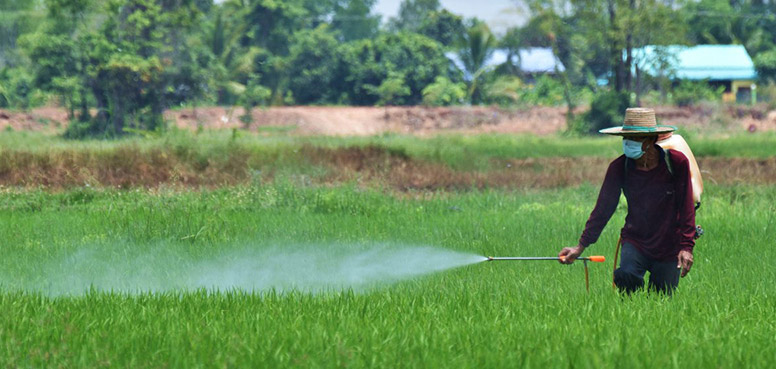Farmers use pesticides, such as insecticides, fungicides, herbicides, acaricides, etc., to help crop resist to disease, weeds, and pests. Proper usage of pesticides ensures the yields and quality of crops. However, the overuse or use of forbidden pesticides can result in the accumulation of harmful chemical residues in food products. This would subsequently threaten the health and safety of animals and humans. To avoid the risk of health issues, it is critical to strictly control pesticide exposure under local and international standards, and to minimize the pesticide residues in crops.

Lifeasible is a reliable partner for pesticide residues testing, who provides expert trace residue analysis services. Using liquid (HPLC-MS/MS, triple quadrupole UPLC-MS/MS) and gas (GC-MS/MS) chromatography techniques, together with other modern technologies, we provide fast and accurate detection, identification and quantification of pesticide residues in food products. The pesticides items can be tested include, but not limited to:
We are dedicated to providing our clients with personalized, timely, and reliable services with detection limits ranging from the part per trillion to low part per billion range. Our pesticide residue analyses are available for a variety of food products, including fruits, vegetables, beverages, seafood, meat, poultry, spices, and processed goods. For more detailed information about our pesticide testing services, please contact us. Our technical team will do their best to help with your request.
Lifeasible has established a one-stop service platform for plants. In addition to obtaining customized solutions for plant genetic engineering, customers can also conduct follow-up analysis and research on plants through our analysis platform. The analytical services we provide include but are not limited to the following:
Get Latest Lifeasible News and Updates Directly to Your Inbox
Adaptive Evolutionary Mechanism of Plants
February 28, 2025
Unraveling Cotton Development: Insights from Multi-Omics Studies
February 27, 2025